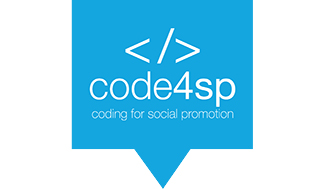Coding skills are growing more critical by the day, being used not just in the field of computers but also in various industries. Learning to code in the 21st century gives you the skills to succeed in today's digital environment. However, no skill is more valuable and more complex to come by than the ability to think through problems critically.
It has already been said that programmers think differently from other people; not being necessarily more intelligent or more rational than others, scientists started to study the influence of programming on the brain, coming up with some interesting conclusions.

While the majority of non-programmers believe that coding is simply math and logic, it is much more than that. Still, they mainly solve complex problems, model situations in ordinary life, and give estimations based on many factors.
Programming activates learning centers in the brain
According to research by Dr. Janet Siegmund, analyzing a program can activate up to five areas in the brain at once, associated with language processing, working memory, problem-solving, and attention.
MIT neuroscientists discovered that reading computer code activates the multiple demand network in the brain, a diffuse network that is also recruited for complicated cognitive tasks like solving math problems or crossword puzzles. Thus, as coding activates many brain regions, it reinforces the monotonous movement that develops muscle memory and improves the brain's ability to become more proficient in the learning process.
Programming shapes your mental models
Programmers need a different way of thinking to create lines of code; they take some abstract concepts and turn them into something concrete and understandable.
While logic and mathematical skills can help you in coding, having creativity and thinking outside of the box will significantly impact you. However, a fascinating fact is that the design of the first programming language we learn can shape how we think.
One of history's most influential computer scientists, Edsger Dijkstra, in 2012 stated: "The tools we use have a profound (and devious) influence on our thinking habits, and, therefore, on our thinking abilities." In other words, the methodology, concept, and features of your first programming language can influence how you think about data structures or algorithms, setting the ground for learning many different languages.
Coding teaches that mistakes do not equal failure.
Coding is one of those activities where making mistakes and trying again is expected; in this way, the coding process teaches patience while praising the exploration of various pathways and reframing priorities. The fascinating aspect of coding is that you can code entirely with your mind and imagination once you've learned a language.
The point is that as you learn to code and grow more comfortable with a language, you'll find that you don't need to use your programming manuals or online reference guides as much, as your mind will be trained to think in a specific way, communicating complex ideas in simpler terms.

References:
- DuBois Alex, 2020, How Programming Changes the Way You Think
- Lee Joel, 2019, How Programming Affects Your Brain: 3 Big Truths According to Science
- Mental Club, 2021, How does programming change your way of thinking






